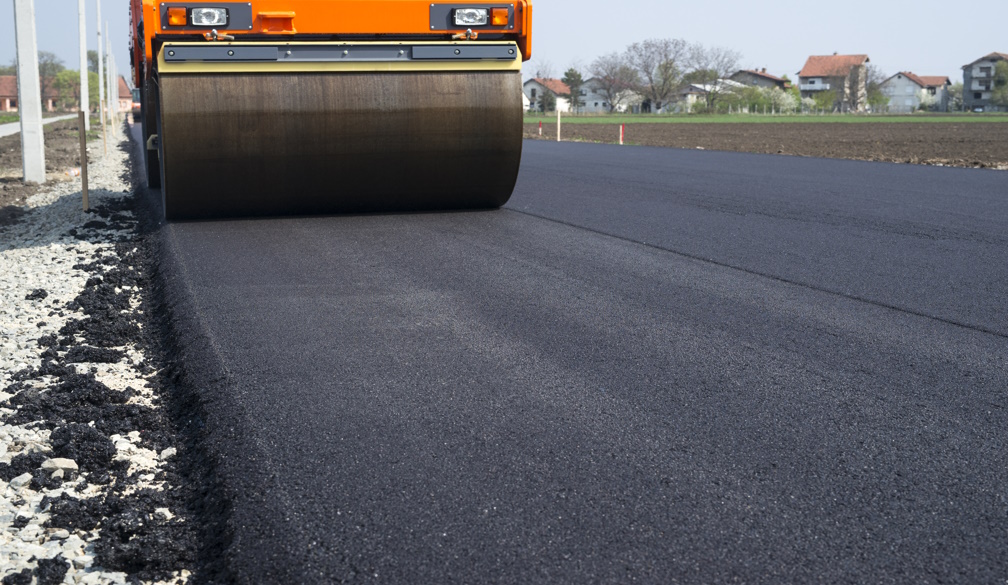How modern technology is transforming earthworks and asphalt paving services

The construction industry has always been accustomed to adapting to changes. Recent technology developments have started to transform the construction industry in ways that were once considered impossible. The transformation of earthworks contractors and asphalt paving services is not just evolutionary, but revolutionary.
The era of traditional equipment and expected workflows has ended. The industry now emphasises precision and speed while ensuring sustainability through the use of advanced technological innovations. If you’re in the business, you know: staying ahead means embracing these technologies. So, what’s driving the transformation? And why should you care?
Consider a worksite where GPS technology directs machinery to perform grading tasks more efficiently than traditional manual methods. High-tech systems generate real-time millimetre-perfect coordinates, while contractors no longer depend on surveying stakes and visual assessments. Satellite data leads excavators, bulldozers and graders to precise operations which minimise errors while saving costs. It’s precision like never before, and the results speak for themselves: faster, cleaner projects with less material waste. This advancement represents a massive leap rather than a small step forward.
But it doesn’t stop there. Contractors are changing their site management and surveying methods through the use of drones. A once labour-intensive procedure has been reduced to just a few minutes. A drone surveys the site from above by capturing high-resolution photographs to generate comprehensive maps of the whole area. The purpose extends beyond presentation to enable comprehensive site analysis.
3D modelling software enables contractors and businesses to view their projects from any perspective. Contractors now have the ability to monitor project progression live while identifying setbacks swiftly to prevent them from turning into significant obstacles. Visualise the power of detecting an emerging problem before it leads to thousands of dollars in expenses. That’s the power of aerial technology.
We need to discuss asphalt, which constitutes an essential yet frequently ignored part of our infrastructure. Modern paving methods involve more than creating a smooth surface as they focus on producing a durable pavement. Paving equipment with thermal imaging cameras produces infrared data to maintain consistent temperature throughout the asphalt mat during compaction. Minor heat changes result in weak areas that accelerate pavement deterioration. Contractors can achieve pavement consistency and longevity while enhancing project speed through this advanced technology.
Recycled asphalt pavement (RAP) stands as a transformative solution for sustainability advocates. RAP transforms reclaimed asphalt through processing for its reuse. This innovative technology helps preserve raw materials while reducing landfill waste and provides the added benefit of lowering costs without reducing quality. It’s the best of both worlds.
This strategy delivers environmental benefits alongside improved financial performance. Constructing projects becomes more efficient and precise while cutting costs when we integrate automated paving systems into the process. These systems maintain control over speed and compaction to deliver consistently smooth and durable surfaces.
Ground-level tools represent only a fraction of what technology encompasses. Project management methods stand as a key component of technological integration. Building Information Modelling (BIM), which used to be an exclusive domain for skyscrapers and architects, is now being adopted in the field of civil works. BIM enables team collaboration through virtual environments, which minimises errors before construction begins. This is similar to forming a virtual replica of your project before actual construction starts. All parties, including designers, contractors, and clients, work together to continuously improve the design.
The focus extends beyond state-of-the-art software to transform our approach to the complete project lifecycle. And for businesses? The payoff is massive. BIM creates improved communication channels while ensuring smoother project timelines and eliminating unexpected setbacks.
Project management practices have transitioned into the digital age. We no longer need to wait until the weekly meeting to learn about project progress. Cloud-based platforms enable contractors to share documents and update schedules while tracking milestones in real time. Teams can report field updates instantly through mobile apps, which helps minimise delays and maintains alignment across all members. Through automated scheduling and cost-control tools, managers can dedicate their attention to strategic planning instead of getting bogged down in details. The result? Projects now deliver timely results and maintain budgetary constraints with unprecedented control.
Sustainability must also not be overlooked. The modern business environment demands environmental awareness as a fundamental necessity. Construction sites are reducing dangerous emissions because hybrid and electric machinery are increasingly adopted in fleet operations. Standard dust suppression systems now maintain better air quality and support regulatory compliance. Advanced erosion control methods help preserve land effectively while reducing surface runoff. Construction professionals utilise reclaimed materials to innovate while simultaneously cutting down waste and minimising carbon emissions. Sustainability requires companies to make ethical decisions while improving efficiency and cost savings.
When you assess contractors, you should look past basic criteria. Don’t just ask about experience or price. Dig deeper. Which GPS technology and machine control systems do their operations use? Do they leverage drone technology for surveying? How do they ensure asphalt quality? The most important thing to ask is how contractors extend the limits of sustainability through their work practices. These responses reveal the contractor's dedication to innovative practices and their capacity to achieve advanced results.
The construction industry continues to evolve rapidly without any signs of slowing down. Technological advancements are rapidly transforming. Businesses that successfully remain ahead of industry trends experience obvious benefits. The construction industry's future unfolds in this moment through advancements that deliver precision and speed while providing cost efficiency and environmental sustainability.

